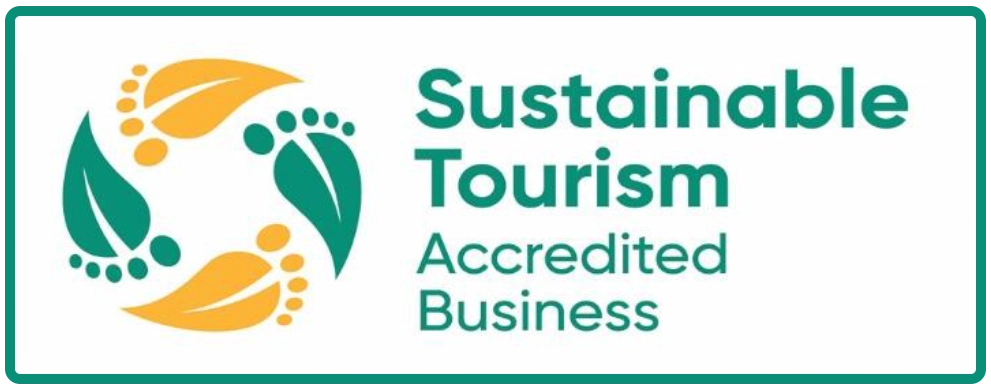14 Top Tips For Travelling Australia In A Campervan
Campervan may be the absolute best way to travel around Australia. You can take your time cruising along the country's dazzling coastline, stopping for picnics, BBQs, bushwalks, and refreshing swims in the ocean.
You can plan your own schedule, meet other adventurers, and explore more of the local towns and hidden gems. If you're planning on exploring Australia with an epic road trip, here are some of our top tips for travelling Australia by campervan!
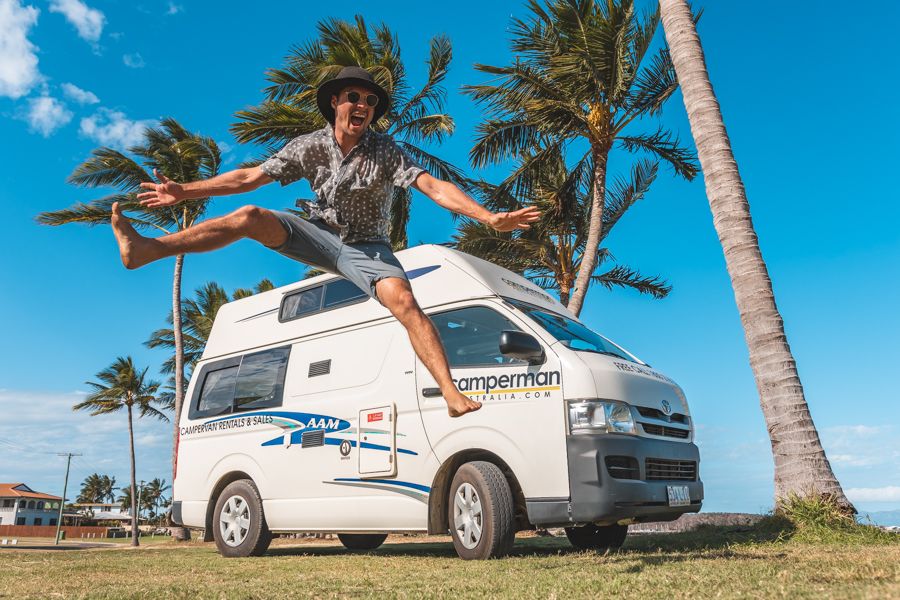
14 Top Tips For Travelling Australia By Campervan
From general safety to budgets, research, and travel inspiration, here are some important things to know before hiring a campervan to travel Australia. Traversing the country by campervan is a carefree and exhilarating experience, but it does require some planning and preparation. Whether you're a knowledgeable road tripper or a complete beginner to campervan travel, these tips will help your Australian adventure run as smooth as possible.

1. Invest in insurance and roadside assistance
One of the most important things to do before starting your road trip is to invest in comprehensive car insurance and roadside assistance. While this may seem expensive, being covered for things that are out of your control, such as an accident or mechanical breakdown, could be the difference between being able to continue your adventure or having to pack your belongings and fly home.
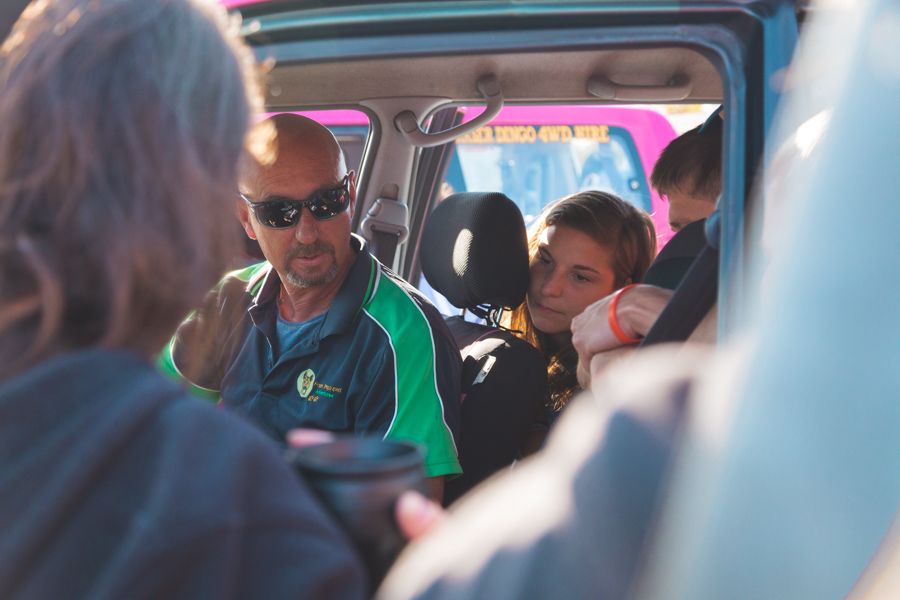
2. Do your research about when to travel
Weather plays a large part in the accessibility of many of Australia’s natural attractions so it’s important to do your research and work out the best time to visit. For example, northern Australia has two distinct seasons - wet and dry. During the wet season, heavy rains have the potential to make some roads impassable and turn campsites to mush.
On the other hand, late in the dry season, many waterfalls and rivers dry up completely which can lessen their appeal. So, save yourself the disappointment and do some reading before you leave to ensure you reach your destination at the ideal time to make the most of it.

3. Be aware of school and public holiday dates
Australians love the opportunity to enjoy the outdoors on long weekends or school holidays. Unfortunately for the everyday travellers, camping is so popular during these times that free camps fill up quickly and caravan parks or paid campsites either book out a year in advance or are extremely expensive.
Unless you are a part of these families wanting to make the most of their holidays, it is best to familiarise yourself with these dates so can avoid the crowds and plan to camp and explore destinations further away from the towns and cities. If you are going to be on the road during one of these times try to book your accommodation as early as possible to avoid getting stuck without a place to stay.
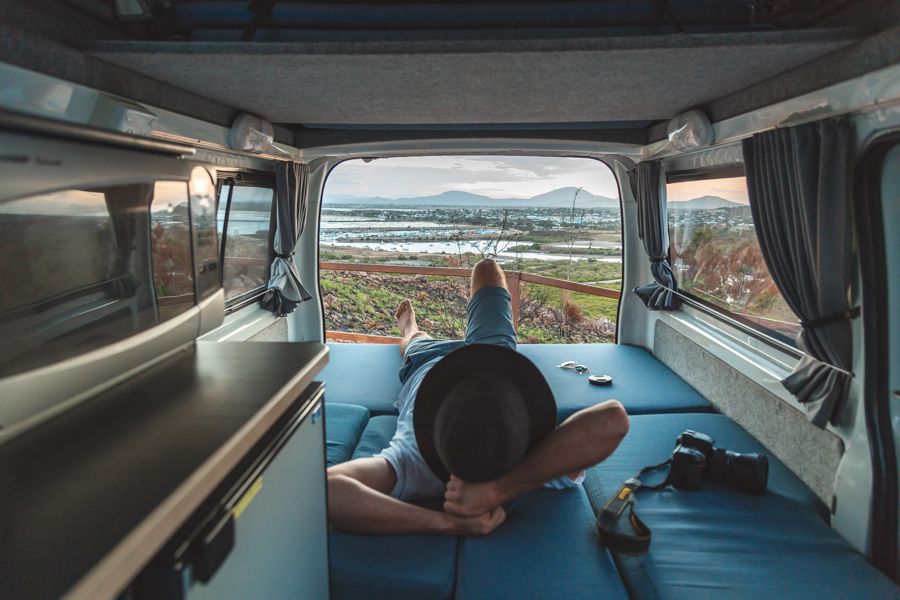
4. Be flexible
It's easy to spend hours excitedly planning your itinerary, but it's a good idea to be flexible when travelling Australia by campervan! Not everything will go to plan while you travel - you may lose track of time while swimming under a waterfall or a flat tyre may ruin your day. A tight schedule will cause you unnecessary stress, so try not to put strict expectations on your trip.
Besides, some of the best adventures occur during those random unplanned side trips based on the recommendations of others or something that catches your eye. Let loose, go with the flow, and just enjoy the moment when travelling Australia!
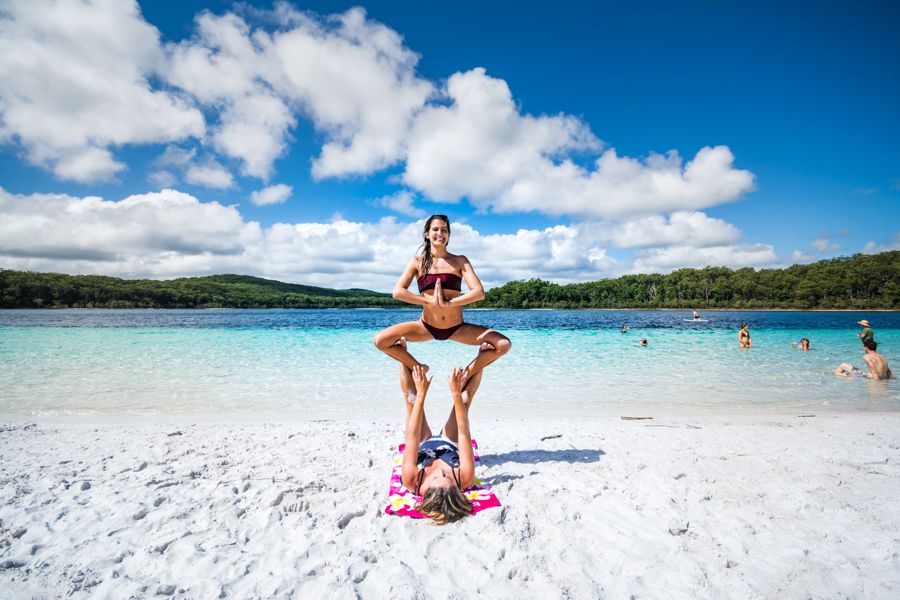
5. Work out your budget and (try to) stick to it
Yes, budgets are hard and boring but if you truly want to make the most of your Aussie road trip, you need to manage your finances. It can be very easy to overspend on little things that quickly add up and before you know it your entire trip fund is gone and you have to head home early - not the experience you were hoping for!
Fuel is usually the biggest expense while on the road followed by food and alcohol. To reduce the amount of money you spend on fuel, limit your speed, use your supermarket receipts to save cents per litre of fuel (at participating outlets), or download one of the many apps you which show you the locations of the cheapest fuel. To reduce your spending on food and alcohol, try to cook some meals on the road and limit your alcohol consumption to special occasions if possible.
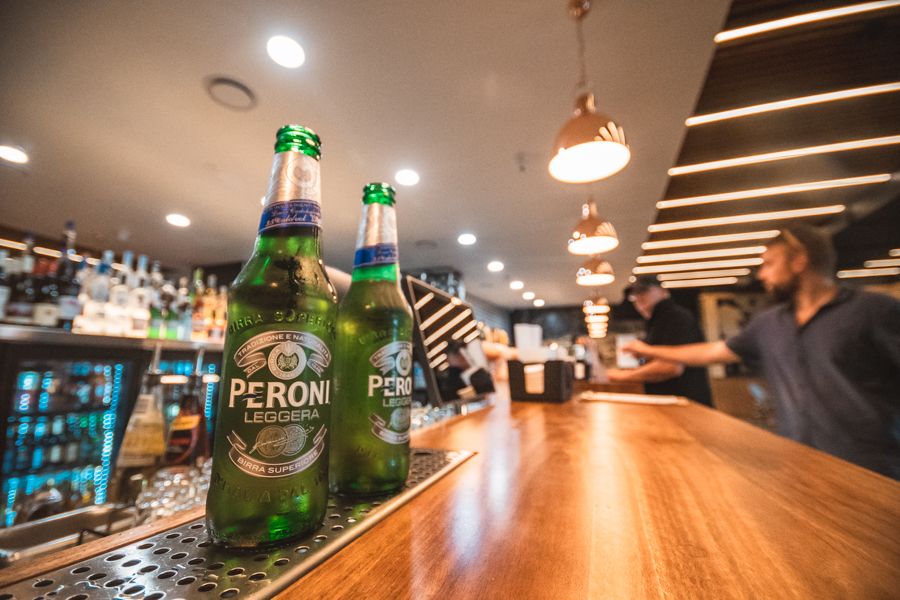
6. Download Google Maps for use offline
Even in the advanced technological age we live in, phone coverage can be limited in many remote (and some not-so) places around Australia and you do not want to be stuck in the middle of nowhere without a map. Google Maps has a handy feature that allows you to download maps of an area free of charge (normal data charges apply). This means that when you lose phone service you can access the maps stored on your device and keep on driving.
Tip: Do not rely on Google Maps for gravel roads or offroad tracks - travel times can be wildly overestimated (sometimes by up to 5 hours!) and directional information can be misleading. It's always a good idea to have a handy, old-fashioned paper map as well!
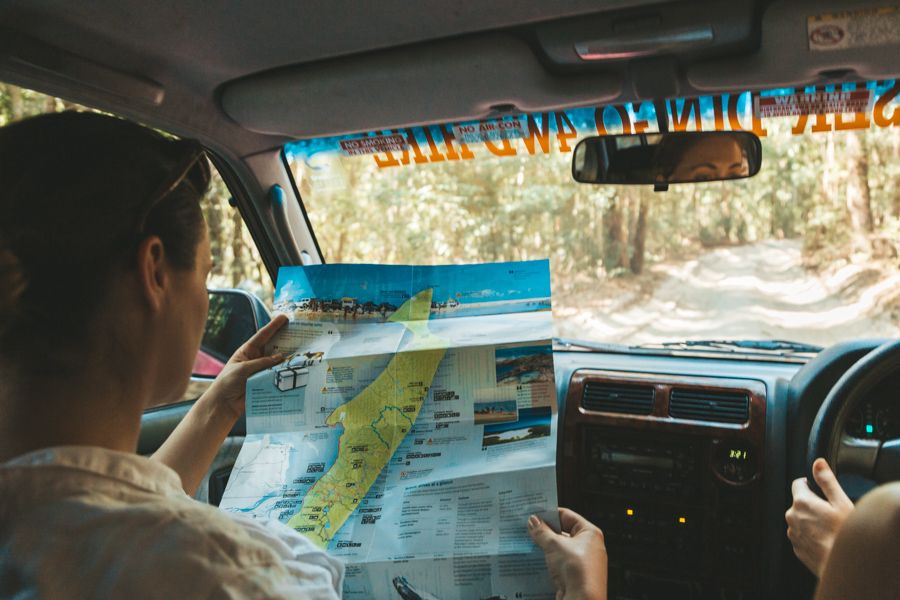
7. Find the ideal speed for your vehicle
While it may be tempting to travel at the speed limit to reach your destination faster, travelling at 100kmph or over (where allowed) will cause your campervan to use considerably more fuel than when you travel 10-20km slower. While each vehicle varies, the sweet spot for your engine will usually be between 80kmph and 95kmph. Trust us, limiting your speed will save you significant money on fuel and the difference in your arrival time will only be a matter of minutes.

8. Carry lots of water and keep hydrated
While this may seem like a no-brainer, carrying enough water is vital for travelling in Australia. When it is hot, you will need a minimum of 4L per person for the day and extra for things like washing up and brushing your teeth. Purchase at least one 20L jerry can from stores such as Bunnings, Kmart, or BigW and fill it with tap water to take with you. During the day, take a drink bottle wherever you go (especially when going for a hike) and drink frequently. Becoming dehydrated can happen quickly in the Australian heat and can be dangerous for your health.
Tip: Remember it is strongly advisable not to drink water straight from water sources such as rivers or lakes without treating it by boiling or using water purification tablets to kill bacteria first.

9. Beat the heat
If your van heats up too much during the day it can make for a very uncomfortable night’s sleep. To beat the heat always try to park in the shade, even if you are just stopping for 5 minutes. We also recommend using sunshades on the windscreen and side windows and positioning your campervan for the best air circulation at your campsite.
Consider the direction of the sun as well. You might have shade in the afternoon but when the sun rises in the morning your van could quickly turn into a furnace unless you leave early.

10. Avoid driving between dusk and dawn
Another handy tip when travelling Australia by campervan is to avoid driving in the dark. Many native Australian animals are nocturnal and become most active in the twilight hours of dusk and dawn. 'Kanga o’clock', when a lot of animals graze near the roads, occurs around 4pm so try to park up for the day well beforehand whenever possible to minimise harm to the native wildlife and your vehicle. It's also handy to set up camp for dinner before the sun goes down so you aren't washing up in the dark, or stumbling around looking for the tomato sauce after a long day of driving!
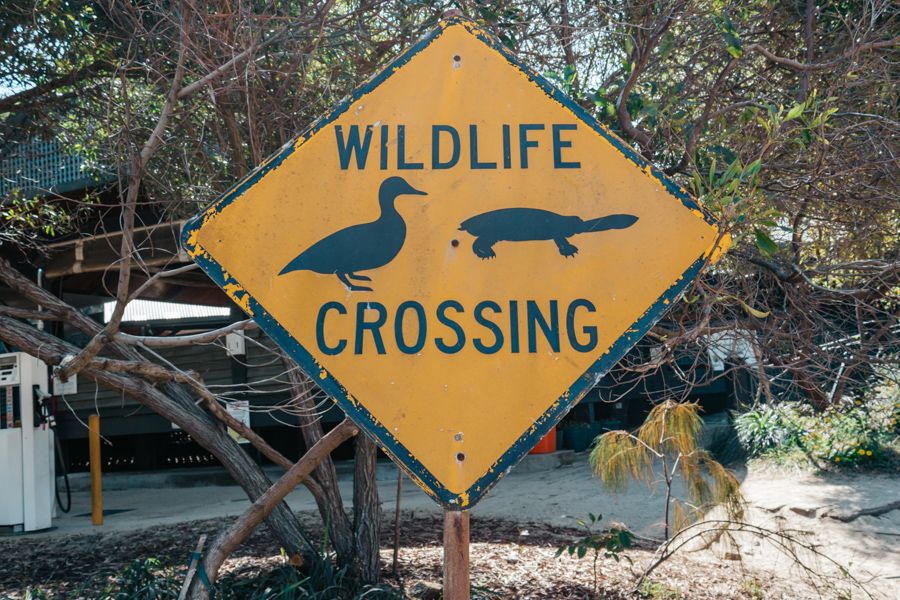
11. Make the most of free campsites
Incredible as it may sound, some of Australia’s best campsites are absolutely free! Choose from secluded beaches, rainforest retreats, riverbanks, or farm stays - the possibilities are endless! To find the best free camp spots, ask other travellers and locals for their recommendations or download the WikiCamps App - a great resource that lists all free (and paid) campsites and points of interest with photos and reviews from other travellers.
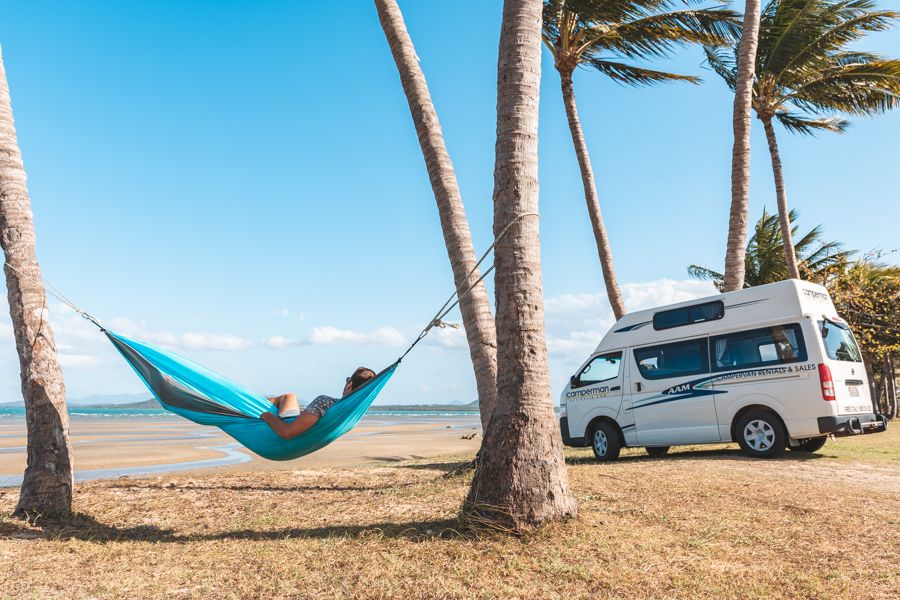
12. Explore the national parks
Picture pristine waterfalls surrounded by bushland or rainforest and hikes that end with spectacular views and freshwater swims. Australia’s National Parks are beautiful and peaceful natural attractions that are mostly free to access for daytrippers. Many National Parks also offer excellent unpowered camping facilities including BBQs, picnic areas, toilets, and sometimes showers. To stay overnight you will need to book your camping permit online or through a National Parks Office but at just a couple of dollars per person, the experience will be worth every cent.
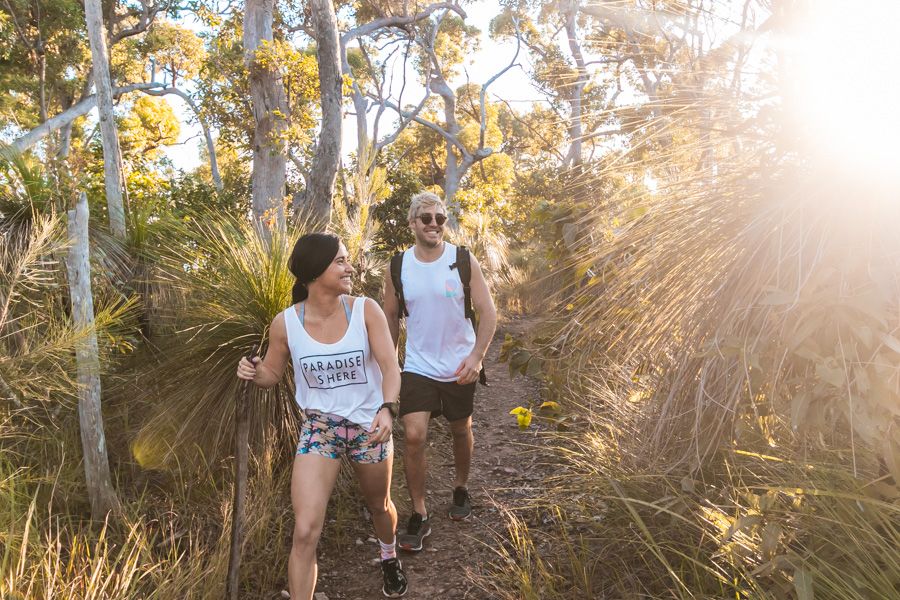
13. Always keep your food locked away
Unless you feel like attracting the local wildlife and waking up to an almighty mess spread right across the campsite, be sure to pack up and do your dishes before you go to bed. Possums, wild cats, dingoes, birds, and even kangaroos are just some of the animals that will visit overnight if they can smell food or rubbish.
Always store all food in your campervan or a lockable container and be sure to stash your rubbish in a zip-up dirty gear bag that can be attached to the back of the vehicle (you don’t want the inside of your van smelling like a rubbish dump).

14. Pack a ‘Floatie’ or ‘Noodle’
Some of Australia’s top attractions include freshwater rivers, lakes, hot springs, and waterfalls and when the temperature is high there is nothing better than a nice swim. However, floating in freshwater can be more of a chore due to the lack of saltwater buoyancy, so unless you only feel like a quick dip (or getting some exercise), bring along an inflatable toy (doughnut or animal!) or a pool noodle for floating easily - this will double your fun and allow you to stay in the water for much longer.
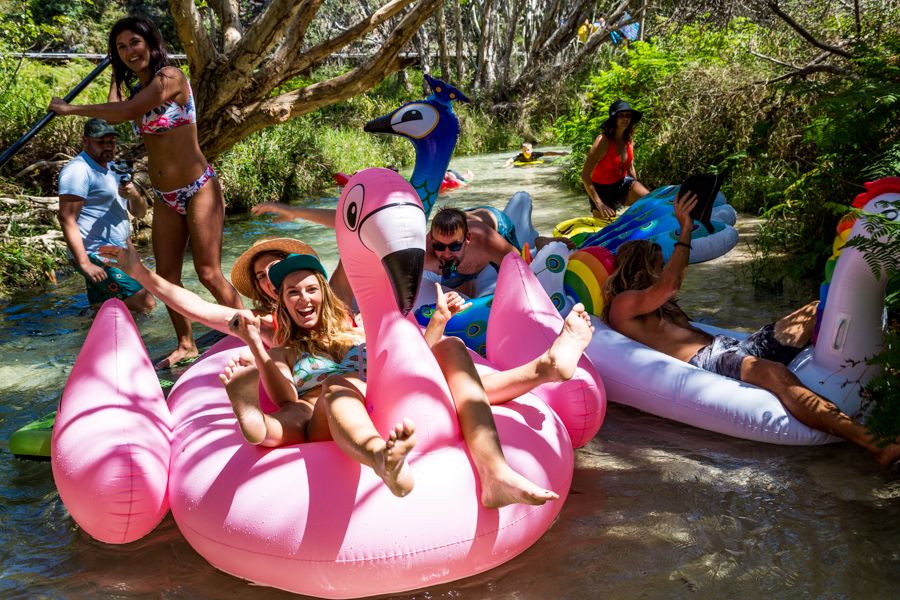
Is it worth travelling Australia by campervan?
Absolutely! Travelling Australia by campervan is one of the best possible experiences you could have Down Under. Whether you plan to travel the East Coast, West Coast, Top End or down South, driving Australia via campervan will leave you with memories to last a lifetime.
As East Coast specialists, we've got all the best tips and tricks for having the best travel adventure in top destinations like Cairns, K'gari (Fraser Island), and the Whitsundays. We can also offer some of the best deals on campervans so you can have an affordable yet adventurous time in Australia!











